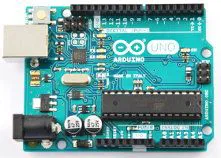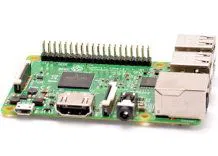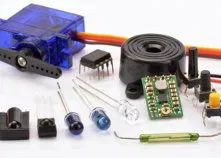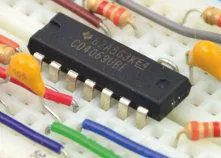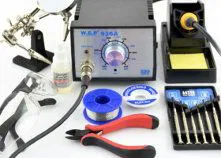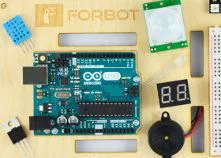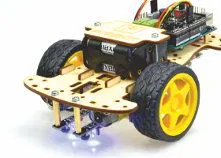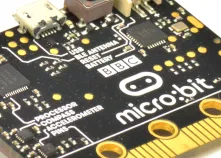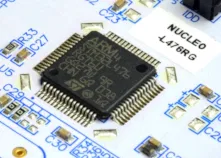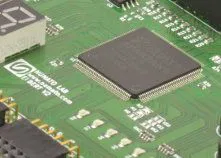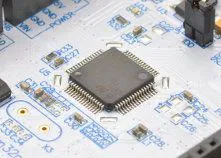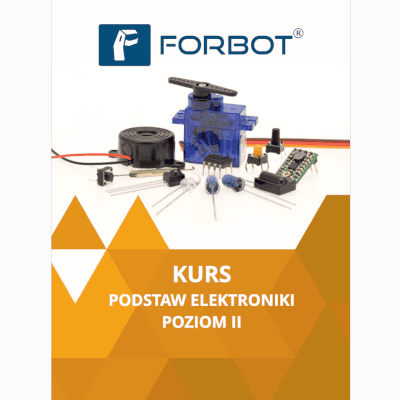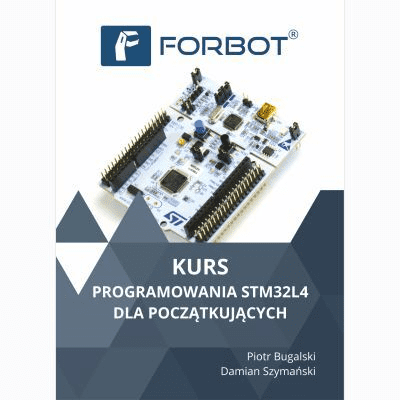Table of Contents:
Precise measurement of distances is at a premium today, not only in many industries and sectors of the economy, but also in our daily lives.
This used to be done using traditional solutions such as tape measures or calipers.
Today, the laser distance sensor is very popular.
It allows fast and accurate measurement, which is crucial in a variety of applications.
Check out how such a device works, its main advantages and where you can use it in a practical way!
What is a laser distance sensor and how does it work?
Laser distance sensor is a device that uses a beam of laser light to accurately measure the distance between a sensor and an object.
Its operation is based on the principle of measuring the time that elapses from the moment the light beam is sent until it bounces off the target and returns to the sensor.
Advanced electronics inside the device convert this time into distance using the precisely known speed of light.
As a result, laser distance sensors can offer exceptional precision, making them indispensable in many technical and engineering applications.
The basic component of the laser distance sensor is a laser diode, which generates a concentrated beam of light.
When the device is turned on, the diode emits a short pulse of light that travels to the target and is reflected back.
The reflected signal is then recorded by a detector inside the sensor.
Based on the elapsed time between sending and receiving the pulse, the sensor’s electronics calculate the distance to the target.
This method ensures high measurement accuracy, regardless of the color, texture or level of reflection of the object being measured.
Advanced sensors can additionally use various methods to improve measurement accuracy and reliability, such as laser light phase modulation or timing techniques with picosecond resolution.
These technologies enable the sensors to operate in a wide variety of conditions, minimizing the influence of external factors such as ambient lighting or the reflective properties of the object being measured.
Why are laser distance sensors so highly regarded?
Laser distance sensors are popular in many industries for several key reasons.
Here are the key advantages of this type of device:
1. high accuracy and repeatability of measurements
One of the main advantages of laser distance sensors is their ability to make very precise measurements.
By using advanced laser technology, these devices can measure distances with millimeter-level precision, even over long distances.
Repeatability means that repeated measurements of the same object produce very similar results, which is crucial in applications requiring precision, such as manufacturing, robotics and surveying.
2. fast response time
Laser sensors can take measurements in fractions of a second, which is essential for applications that require fast response, such as vehicle safety systems, industrial automation and robotics.
Short response times allow dynamic adaptation to changing conditions in real time.
3. ability to work in difficult conditions
Laser distance sensors can operate effectively in demanding environments, such as high humidity and extreme temperatures.
The laser beam is less susceptible to interference than traditional measurement methods, enabling their use in demanding industrial environments.
4. independence from material properties
Another major advantage is that laser measurement does not depend on the color, texture or material of the object.
Laser distance sensors can measure on plastic, wood or metallic surfaces, making them a versatile tool for many applications.
5. small size and ease of integration
Today’s laser distance sensors are characterized by their compact size, which facilitates integration into a variety of systems and devices, such as Arduino mini-controllers.
Their small form factor allows them to be placed in areas where space is limited.
Where is the laser distance sensor used?
Modern laser sensors, which are designed to measure distances, are used in a wide range of applications.
In industrial automation, they are used to control the position of components on a production line, measure the dimensions of products or detect the presence of objects in specific zones.
In robotics, they enable precise robot navigation, obstacle detection and accurate positioning of manipulators.
In construction and surveying, these sensors are used to accurately measure distances and heights, which is invaluable for creating site maps or taking architectural measurements.
In transportation and logistics, they help monitor and manage warehouse space, automating loading and unloading processes, resulting in greater efficiency as well as time savings.
It is also worth mentioning that you can use the laser distance sensor in electronic DIY projects.
With the help of this component you will build, for example, a home alarm system or an automatic pet feeder.
The availability of sensor modules and the openness of platforms such as Raspberry Pi encourage you to create personalized solutions.
How to choose the right laser sensor for measuring distance?
Buying the right laser sensor requires consideration of several important factors.
First and foremost, the measurement range of the device should be matched to the specific task it will face.
Equally important is the resolution and measurement accuracy, which must be tailored to the requirements of the specific project.
In addition, the sensor should be suitable for the conditions in which it will be used, which includes resistance to environmental factors, as well as compatibility with the rest of the system, especially the interface or communication method.
How useful was this post?
Click on a star to rate it!
Average rating 5 / 5. Vote count: 1
No votes so far! Be the first to rate this post.





